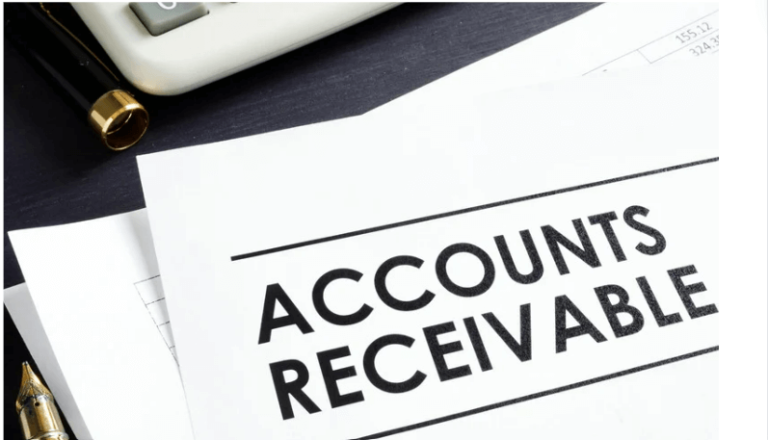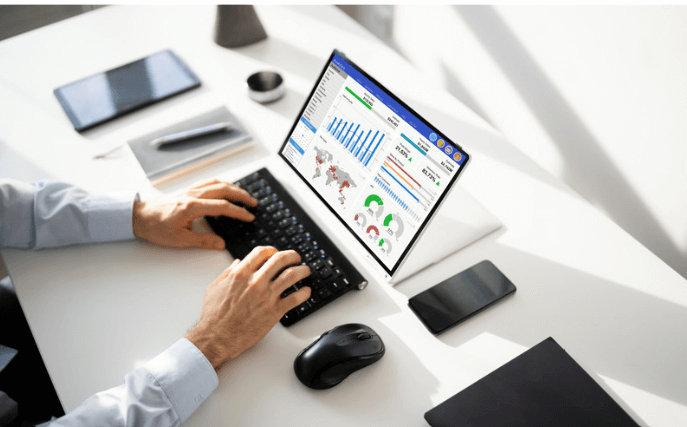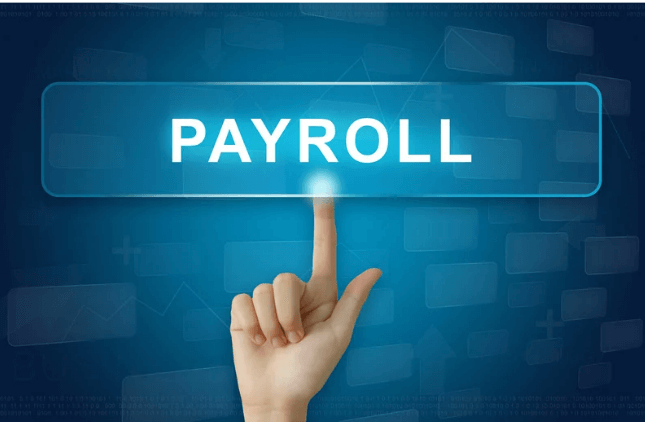Key Points:
1.Tracking Time of Offshoring Staff ensures accurate billing, better resource allocation, and helps set realistic project timelines by understanding how long tasks take.
2. It improves accountability by monitoring productivity and ensuring that service level agreements (SLAs) are met, leading to higher quality and timely project completion.
3. Regular time tracking helps identify inefficiencies or delays, allowing firms to make process improvements and provide necessary training for offshore staff.
4. Effective time-tracking processes—such as project-wise recording, detailed task breakdowns, and consistent reporting—ensure transparency and boost client satisfaction through accurate invoicing.
With the advancement of technology, many accounting and CPA firms have started leveraging offshore capabilities to improve productivity and reduce costs.
While offshore outsourcing provides various benefits, firms need to track the time their offshore staff spend on different tasks.
This helps ensure billing accuracy, project management, and resource allocation. In this article, we will give key insights into Why Tracking Time of Offshoring Staff Is Crucial for CPAs and Accounting Firms.
What Is Offshore Staffing in an Accounting Firm?

Offshore staffing refers to leveraging accounting and bookkeeping resources based in lower-cost countries. Many CPA firms set up offshore delivery centres or outsource specific tasks to specialized service providers abroad. Typically, countries like India, the Philippines, Malaysia, and others in Asia, Latin America, and Eastern Europe are popular offshore destinations for accounting work.
Offshore staff mainly perform operational tasks like data entry, account reconciliation, financial statement preparation, payroll processing, and tax filing. They work closely with onshore teams but are physically located elsewhere. While communication occurs virtually through applications, offshore partners hire and manage accounting assistants, bookkeepers, and other support staff on behalf of their client firms.
Key Advantages of Offshore Staffing
Some key advantages of offshore staffing models for accounting practices:
- Lower pay rates: Offshore staff can be hired at lower pay compared to domestic staff in countries like the US/Canada. This significantly reduces costs for routine tasks.
- Round-the-clock operations: With workers based in different time zones globally, accounting work can be done almost 24/7 without pause. Productivity is greatly enhanced.
- Large talent pool: Countries like India and the Philippines have developed a strong expertise in accounting over the years. This provides access to a large pool of skilled accounting professionals.
- Reduced costs: Outsourcing non-critical compliance work offshore helps slash expenses significantly. Firms save on labour for routine accounting functions.
- Focus on value: With basics handled offshore, onshore staff can shift focus to value-added services like advisory, consulting, complex tax, and strategic client support.
Reasons why tracking time of offshore staff is crucial for CPAs and accounting firms

The reasons why Tracking Time of Offshoring Staff is crucial are mentioned below:
Understanding Time Spent
For CPA firms working with offshore partners, it is crucial to get clarity on the number of hours spent by remote staff on specific projects. Detailed time tracking gives insights into the time required to complete different tasks.
This helps set realistic deadlines and estimates. For example, a firm may realize through time data that preparing financial statements for a manufacturing client requires more hours than for a retail client.
Useful for Invoicing and Budgeting
By having their offshore staff record time against individual projects daily, accounting firms have access to accurate data for invoice generation and billing of clients. Time tracking also aids budgeting and resource allocation for future projects. Firms can determine the staffing and number of hours required based on past similar projects. This ensures clients are billed appropriately, and budgets are properly utilized to meet timelines.
Maintaining Quality and Productivity
With time recording in place, CPA firms have visibility into the number of hours various projects and tasks take. This allows them to spot inefficient processes, delays, and quality issues.
Firms can then work with their offshore partners to introduce tailored training, improved guidelines, and quality checks to enhance productivity over time. Regular monitoring and benchmarking of time data leads to higher quality and faster turnaround with optimum use of resources.
Ensuring SLAs and Deliverables
Accountability is essential when leveraging offshore staff. Time tracking acts as a check for firms to validate that service level agreements (SLAs) around project completion timelines are being met. It allows auditing deliverables against estimated hours.
Any deviations in timelines or inconsistencies in reporting can be flagged for corrective discussion. Regular monitoring through time data helps firms hold their offshore partners responsible while optimizing processes to improve on commitments over the long run.
Client Satisfaction and Billing Accuracy
Accounting firms must deliver work of the highest standards to their clients on time and budget. Time tracking offers transparency to clients about how their matters are handled both onshore and offshore.
It enables precise invoice generation with a detailed backup of hours spent. Any billing disputes can be addressed promptly using time data as supporting documentation. This maintains client trust and satisfaction towards the overall service, a key success factor for CPA practices.
Ways to Effectively Track Time of Offshore Staff
The ways to effectively track the time of offshore Staff in CPAs and accounting firms are given below:
Project-wise Time Recording
One of the most useful ways for firms to track offshore staff time is ensuring their hours are recorded against individual projects on an ongoing basis. Staff can note the project name and number of daily hours spent on separate tasks in a time-tracking software or portal. This provides accurate and granular reporting of time spent per engagement.
Detailed Task Breakdown
For precise time data, firms can develop a task code library with everyday activities broken down into specific sub-tasks. For example, ‘Filing Business Taxes’ may have codes for preparation, review, client meeting, and submission—offshore staff record time against these detailed codes daily, which offers a deeper analysis of time consumption.
Regular Reporting Processes
CPA firms should have set protocols to retrieve time data from their offshore partners periodically, usually weekly or bi-weekly. Automated reports help analyze time spent by staff, projects, clients, and tasks over the previous period. Any delays or overruns are promptly identified through consistent reporting cycles.
Benchmarking and Metrics
Firms can establish benchmarks for common compliance and accounting tasks by tracking time records over multiple periods. Metrics around man-hours per project type and task help evaluate work quality and efficiency. Deviations are investigated to enhance work processes, resource allocation, and staff performance with experience over time.
Tracking time forms a strong feedback loop, enabling course correction and optimization of offshore staff utilization to maximize the benefits of outsourcing for CPA firms.
Wrapping Up
Tracking time spent by offshore staff delivers key benefits for accounting firms and helps optimize operations, client billing, and resource management. While not eliminating the need for oversight, it facilitates data-driven decision-making for higher efficiency, quality, and growth. With technology enhancing collaboration across borders, time tracking remains a fundamental and beneficial practice.
Frequently Asked Questions (FAQs)
Q1. Is time tracking only for billing purposes?
A: While time tracking does help generate accurate invoices, its utility goes far beyond just billing. Having reliable time data also greatly aids details like project timelines, resource allocation, process optimizations, oversight, and quality control.
Q2. How do firms ensure time tracking is done properly offshore?
A: Firms implement timesheet protocols clearly outlining recording policies and obtain verification of time logs periodically. They also conduct periodic audits by sampling entries and matching them with actual work deliverables. Automation and periodic reminders help improve compliance over time.
Q3. What features should a good time-tracking software have?
A: An ideal tool allows staff to log hours against specified projects, clients, and tasks. It supports approval workflows and generates detailed reports and dashboards. Integration with other platforms enhances its usefulness for accounting firms for project management and invoicing functions.
Q4. How do we address concerns about the micromanagement of offshore staff?
A: While ensuring oversight, firms focus time tracking more on outputs than activity-level monitoring. They create an environment of trust and transparency by explaining how data helps optimize processes collectively. Open communication addressed such concerns by valuing staff contribution.
Also read:




